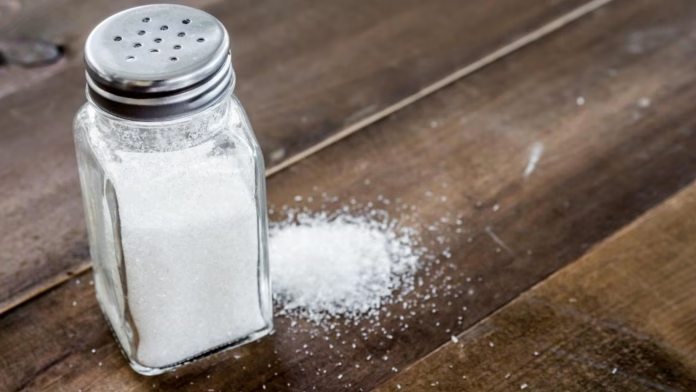Regardless of what we cook or where we stand if it comes to quicking, one thing that we need in all cuisines is salt. Salt and its quantity is important, so much so that it can make or break a dish! Less amount of salt can make the dish feel too plain or bland while more salt can be uncomfortable, but just the right amount of salt is a bliss.
But did you know that apart from the taste, a quantity of salt can also make or break our health?
Less amount of salt and we can have low BP levels, dangers of muscle cramps, nausea, vomiting and dizziness and even chronic conditions like goiter?
Now that we discussed the dangers of low salt intake, let’s dive into the dangers of high salt intake!
- Increased Thirst:
Excessive salt intake can disrupt the delicate balance of fluids in your body, leading to increased thirst. High levels of sodium in your system trigger your body to retain water to maintain proper fluid balance. As a result, you may experience a persistent feeling of thirst, which can be both uncomfortable and inconvenient.
- Bloating:
When you consume too much salt, your body retains water to dilute the excess sodium. This water retention can cause bloating, leaving you feeling uncomfortable and puffy. Bloating can affect your overall well-being and even lead to feelings of self-consciousness and decreased confidence.
- Worsening of Sleep Quality:
Studies have shown that a high-salt diet can negatively affect sleep quality. Excess salt consumption can disrupt the balance of electrolytes in your body, which can interfere with the production of sleep-inducing hormones like melatonin. Consequently, you may experience difficulties falling asleep or staying asleep throughout the night.
- Higher Blood Pressure:
One of the most well-known and serious consequences of excessive salt intake is its impact on blood pressure. High sodium levels in the body cause water retention, leading to increased blood volume and putting additional strain on your blood vessels. Over time, this can result in elevated blood pressure, increasing the risk of heart disease, stroke, and other cardiovascular complications.
- Headache:
For some individuals, a high-salt diet can trigger headaches or migraines. The exact mechanism is not fully understood, but it is believed that the blood vessels in the brain may react to the increased sodium levels, leading to headaches. Cutting down on salt intake may help alleviate or reduce the frequency of such headaches.
- Eczema:
Although the connection between salt intake and eczema is not fully established, some studies suggest that high levels of salt may worsen symptoms in individuals with this skin condition. Excessive salt consumption may lead to inflammation and dehydration, exacerbating the symptoms of eczema.
By reducing your salt intake, you can mitigate these risks and promote better health and well-being. In the following sections, we will provide practical tips and strategies to help you gradually reduce your salt consumption while still enjoying flavorful meals.





